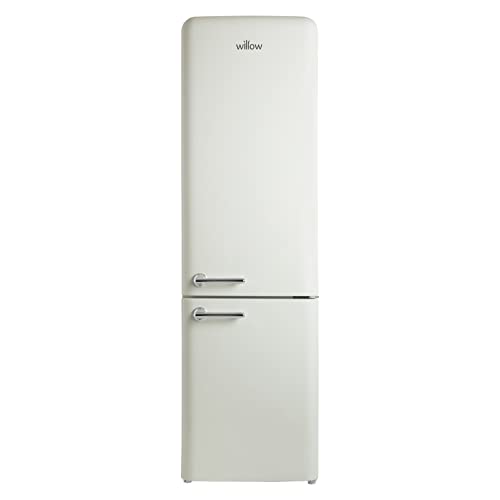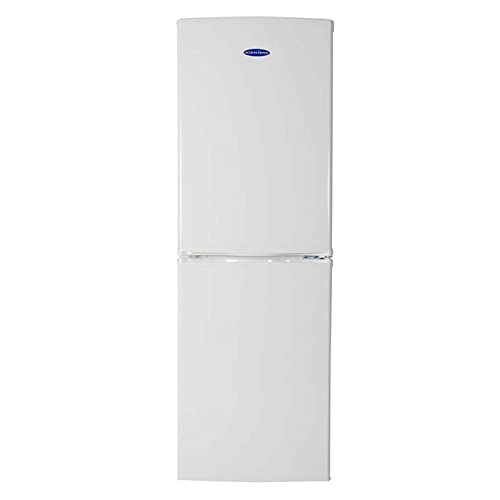
Frydge
Add a review FollowOverview
-
Founded Date October 7, 1927
-
Sectors Wedding
-
Posted Jobs 0
-
Viewed 169
Company Description
15 Best Fridges Bloggers You Must Follow
How to Keep Your Fridge Running Smoothly
Best fridges are available in many different sizes and shapes. They can fit in tight spaces including dorms.
 Some models are compatible with smart devices. You can monitor your fridge remotely and resolve issues in the event of an issue. You can also make use of voice commands to control them.
Some models are compatible with smart devices. You can monitor your fridge remotely and resolve issues in the event of an issue. You can also make use of voice commands to control them.
Noise
Fridges can make a variety of sounds while running, some of which are more obvious than others. If you notice any of the below sounds find out the cause and search for a fix before calling a repair company for your fridge.
Rattling
The sound of a refrigerator rattling could be caused by there’s not enough space between the fridge and the wall or cabinet, or when it’s positioned at an unbalanced angle. It’s simple to fix. It’s just a matter of ensure that there is at least a couple of inches between the fridge and the wall or cabinet, or adjust the leveling screws or legs to increase or decrease the height of your fridge.
Hissing
When the compressor is cooling your food, it could produce a loud sound. This is a normal sound, and it is caused by the compressor oil or refrigerant that is flowing through the system. If you are worried, keep track of how often the compressor runs. Call a fridge repair company immediately if this happens more than usual.
Squeaking
Refrigerators can be noisy when their fans or coils are filthy. If you hear a squeaking sound coming from your refrigerator, you can use an attachment for a vacuum cleaner along with a rag and water or dish soap and warm water to clean the coils and fan. This should be done twice a year or more frequently in the case of older refrigerators or heavily used.
Clicking
A click sound can be heard from a refrigerator. This is usually caused by frozen air around the freezer fan. Defrosting by hand can fix the issue, but it will return in the event that a professional is not called to assist.
If you hear clicking, switch the fridge back on. If you have an ice maker installed, this sound can be caused by it. Make sure to turn it off when you aren’t using ice regularly.
The hum of your refrigerator is normal, and it may be louder during certain times of the day, or following large quantities of stock or freezing functions. The refrigerator is working harder to keep your food cool, so it has to work faster. This is not an indication of an issue.
Dust
Dust in the house is a magnet for bacteria, dirt and other microorganisms, as well as the traces of everyday household chemical exposures. The tiny particles can cause allergic reactions as well as inhalation, and they provide a perfect surface for microbes, including those that can cause infection if they come into contact with a cut.
Cleaning a refrigerator is not easy but regular cleaning can help reduce dust and keep an even temperature. A dirty fridge also wastes energy because it overheats and is inefficient. If your fridge is producing more noise than usual or If you suspect that it is wasting energy by overworking it might be time to get it checked out.
Unlike other airborne particulates, dust doesn’t just drift into the air from outside it is believed. It is made up of resuspended dirt from the house which could be contaminated with lead or other poisonous substances. It also contains mold, pollen, and car exhaust. It also contains pollutants from the past, such as DDT which was banned 50 years ago.
Certain compounds, such as flame retardants, such as decabromodiphenylether are able to volatilize and enter the air, however the majority of chemicals found in house dust are transferred directly from one object to the next, such as by people knocking fibers and minute bits of plastic off of electronic equipment. High-molecular-weight substances, such as surfactants used in cleaners and paint strippers, also migrate directly into dust.
Apart from contaminating the food in the refrigerator, a smoky fridge can also be detrimental to your health. It could harbor allergens such as pet dander or droppings from cockroaches, which can cause asthma attacks and allergic reactions. It may also contain bacterial spores such as staphylococcus.
Researchers have discovered that dust pollution can be linked to a broad variety of health issues, including cardiovascular disease, cancer, leukemia and inflammatory intestinal disease. Recent research showed that the dust in the homes of children who had leukemia contained higher levels of PCBs as well as PBDEs and polycyclic aromatic hydrocarbons.
Condenser Coils
When refrigerators run properly, the coils that are on the back and front of the appliance are supposed to disperse the heat generated by the compressor. If these radiator-like parts are covered in dust, pet hair or lint the compressor has to work overtime trying cool the refrigerator and reduces the efficiency of the unit. It is essential to regularly clean your coils.
If you’re looking to tackle the job yourself it is recommended you unplug the refrigerator and turn off its power supply before beginning. This will reduce the risk that you or your family may be struck by electricity while working on the appliance. If you are allergic to dust it’s an ideal idea to wear a mask for your face. You will then need to find the coils. They are usually located at the back of the refrigerator or, in some instances, at the front and at the base. Consult your fridge’s manual or contact the manufacturer if aren’t sure where they are.
Once you’ve located the coils, you will need to remove the access panel, if there’s one. Then, alternate between vacuuming the coils with an hose attachment that is narrow and brushing them with a condenser brush for cleaning the coils. Be careful not to risk breaking or bent coils. Replace the kick panel or push the refrigerator into the correct position, and then connect it to the electrical outlet.
If you’re not comfortable doing this yourself, then you can always hire a professional. It’s cheaper and simpler to maintain the cleaning routine in order to prevent the issue from occurring.
Maintenance
Fridges are hard-working appliances that keep running all day and night to cool your food. To help them do their job well they require regular maintenance. Simple preventive maintenance will ensure that your machines run smoothly for a long time.
Wipe down the door seals. The gaskets can become clogged with jelly and other sticky food items and allow air to escape through tiny gaps. Clean them by putting baking soda and warm water on a toothbrush or sponge every couple of months.
Another spot to look for issues is the fan at the back of the refrigerator. It can be noisy if it’s clogged by paper, insulation or even mice. Remove the shelves, unplug the refrigerator, and take out any removable parts. Clean the coils and the area surrounding them with an air cleaner and a hose attachment. Make sure to switch the fridge back on when you are finished.
 You should check the owner’s manual for details about where to locate the coils, the fan, and the tools for cleaning you might require. Also, you should go through the warranty to make sure you know what’s covered.
You should check the owner’s manual for details about where to locate the coils, the fan, and the tools for cleaning you might require. Also, you should go through the warranty to make sure you know what’s covered.
